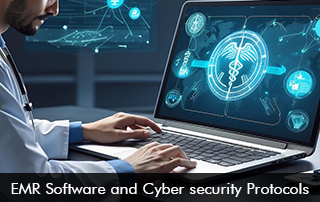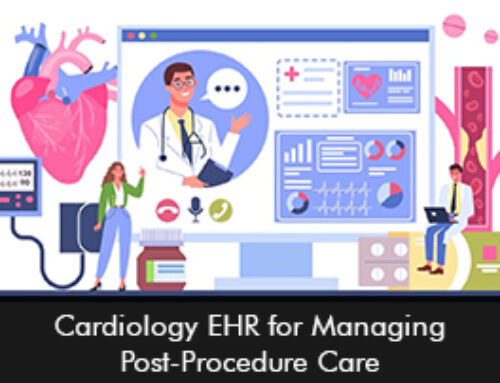Healthcare organizations have utilized the technology of Electronic Medical Records (EMR) Software to streamline workflows and enhance healthcare delivery. Back in the day, hospitals had to maintain the burden of storing and retrieving paper records which was a complete hassle and inefficient way of keeping patient records. They could be easily lost plus increased storage costs. EHR software made records go electronic making way for easy storage and quick data receiving to support the provider’s decision-making process. However, this led to cyber security threats making patient data vulnerable.
Importance of Cybersecurity in Healthcare
Healthcare data in EMR Software is sensitive and therefore securing it has become one of the prime focuses of healthcare institutions. Cybersecurity in healthcare is critical because it protects sensitive patient data, such as personal health information (PHI), from unauthorized access, theft, and breaches.
Healthcare systems have become attractive targets for hackers as medical records become more digital and telemedicine and connected medical devices are used more frequently. A breach in cybersecurity can have serious repercussions, such as jeopardizing patient privacy, disrupting clinical operations, and undermining faith in healthcare professionals.
Improved Cybersecurity with HIPAA-Compliant EMR Software
Electronic Medical Records (EMR) Software Systems that meet regulatory requirements like HIPAA ensures that organizations meet all regulatory standards. HIPAA compliance in EHR Software sets specific standards to secure patient health information, hence ensuring robust cybersecurity protocols.
Encryption
Strong encryption techniques are used by HIPAA-compliant EMR software to safeguard patient data while it is in transit and at rest. This makes sure that data is safe and unreadable even if it is intercepted or viewed without permission.
Access Controls
One essential component of HIPAA-compliant Electronic Medical Records software is the implementation of access control measures. This lowers the risk of internal breaches by ensuring that only authorized workers can access critical information with multi-factor authentication (MFA) and role-based access controls (RBAC).
Regular Security Updates
EMR Software vendors that are HIPAA compliant take responsibility for regularly updating their systems. This keeps the software secure against any cyber threats and vulnerabilities. Updates are key to ensuring that healthcare data remains safe over time.
Recent Healthcare Cybersecurity Attacks
The American healthcare industry has recently been the target of multiple large-scale cybersecurity breaches. A ransomware assault on Change Healthcare, a significant healthcare payment processor, was one of the most serious occurrences. Starting on February 21, 2024, this attack has affected a large portion of the healthcare sector, interfering with insurance reimbursements and computerized prescriptions.
Ransomware attacks against healthcare organizations increased dramatically in 2023, directly impacting at least 141 hospitals. Significant disruptions, including delays in medical care and monetary losses, are caused by these attacks. These attacks have involved ransomware, such as Alphv, which has been connected to Russian-speaking cybercriminals.
Moving Ahead
The increase in cyber attacks makes it even more crucial for healthcare organizations to stay on top of their security game. Data security best practices should be inculcated in all employees, and providers to mitigate the risk due to human errors. Safeguarding patient data needs to be the priority of everyone and healthcare organizations should engage in collaborative intelligence sharing.







